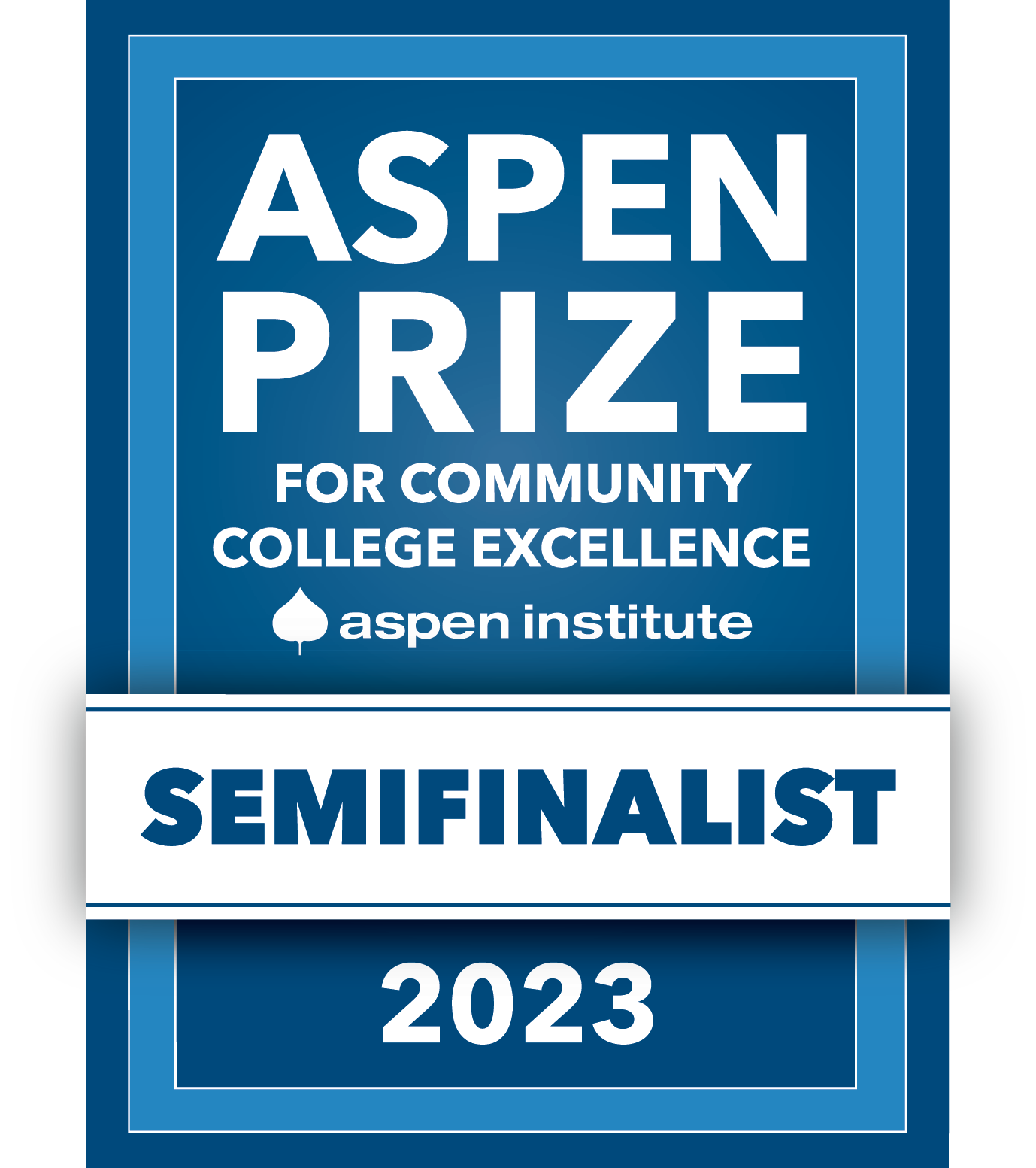- Welcome
- Campus Maps
- History
- Mission Statement
- Accreditation
- Administration
- Employment
- Human Resources Employment Process FAQ
- Position Vacancies
- Salary Schedule (PDF)
- Employee Benefits
- Paid Holidays
- Employee Handbook (PDF)
- Faculty Handbook (PDF)
- BENCOR Special Pay Plan (PDF)
- Social Security Collection and Usage
- Affordable Care Act Notice (PDF)
- Social Security Disclosure Summary (PDF)
- Tobacco-Free College
- Drug-Free Workplace & Campuses
- Technology Usage Acknowledgement (PDF)
- Employee Safety Manual (PDF)
- SFSC’s Annual Security and Fire Safety Report (PDF)
- Calendars
- News
- Social Media
- Honoring Our Retirees
- Celebrating Our Trustees
AVON PARK, Fla.–April 19, 2016–Ever since she was a little girl, South Florida State College student Sharmin Jones has been passionate about caring for people.
Now, after 15 years of caring for patients as nurse, Jones is poised to walk across the stage at SFSC to pick up her Bachelor of Science in Nursing (BSN) diploma at the college’s spring commencement on May 5.
“I grew up under the influence of my grandmother, who often minded me after school,” Jones said. “I learned a great deal about love and support from a woman who spent her entire life caring for others.”
While her grandmother could barely read or write, she helped her husband raise Jones’s mother by caring for elderly residents. Without an education, she could not hope to care for people as a nurse.
Not so for Jones.
“When I graduated from Sebring High School I enrolled in SFSC the following fall,” Jones said. “I aspired to a career in nursing, and I realized the only path to that goal ran through SFSC.”
When Jones graduates next month, she won’t need to look for a nursing position. She’s been employed as a registered nurse since 2003.
That fact, coupled with the singular challenge Jones overcame to earn her degree, got her tapped to deliver the commencement speech on graduation night.
After Jones finished high school, she started taking general education classes at SFSC to build an academic record that would get her into the college’s 11-month Practical Nursing program.
“Competition for a spot in the Practical Nursing program was intense, and I didn’t get in the first or second time I applied,” Jones said. “I wouldn’t give up, so I kept applying for a seat in the class and finally earned acceptance.”
Practical nursing, often seen as a gateway to higher levels of practice, involves caring for patients under the direction of a registered nurse or physician.
Jones credited the program’s rigorous academic work and the steady supervision of Mary Ann Fritz, the longtime nursing education director who retired in 2008, with learning sound nursing skills and how to adapt to a real-world work setting.
Just as Jones entered the final months of her studies, the grandmother to whom she looked for inspiration, was struck down by cancer.
“I helped care for my grandmother in home hospice, holding her in my arms as she took her last breath,” Jones said. “That moment validated for me the decision I made to choose nursing as my career path.”
With her licensed practical nursing (LPN) credential in hand, Jones landed a job at Highlands Regional Medical Center in Sebring. She opted for a shift on the medical-surgical ward. A choice not without a reason.
“I wasn’t going to stop at practical nursing; I had my sights set on earning my registered nursing licensure,” Jones said. “To gain acceptance into SFSC’s registered nursing program, I had to have a sufficient number of work hours in medical-surgical nursing.”
Jones gained acceptance into SFSC’s Transition LPN to RN Associate Degree in Nursing (ADN) program on her first try.
“Going to another school was out of the question for me,” Jones said. “Not just because I’d have to move, but I knew from my previous studies that SFSC’s faculty exemplified the compassion and empathy that makes nursing what it is—a caring profession.”
Jones completed the associate degree transition program in 2003 and earned her registered nurse license. Her “RN” credential opened a door to advancement in the field.
Jones started a 12-year span of work with an area skilled nursing facility. She worked her way up the ladder of promotions: weekend supervisor, unit manager, and finally director of nursing.
When Jones heard SFSC would launch a bachelor’s degree in nursing in 2014, she knew a pivotal moment had arrived.
“There was no question in my mind I would apply for SFSC’s BSN program,” Jones said. “Having a bachelor’s degree meant I could progress further along a career path in nursing.”
Not only do nurses benefit from higher levels of nursing education, patients do as well. A spate of peer-reviewed research has shown nurses with four-year degrees make fewer medical errors, a boon for patient safety.
“Hospitals also benefit from employing nurses with higher education levels,” said Dr. Michele Heston, who taught Jones as she has moved through three nursing education programs at SFSC. “Nurses with more advanced education will incorporate evidence-based best practice into the care they give patients, driving down medical errors.”
After Jones learned SFSC had accepted her into its inaugural BSN class, she sought out her employer with the good news. That’s when excitement turned to despair.
“My employer told me that I would have to give up my position if I returned to school,” Jones said. “After 12 years of dedicated service to my patients, my heart was broken.”
Jones said her employer explained they couldn’t share her with SFSC’s new program—they wanted someone who could be on call at any moment, and classroom time would clash with that requirement. They offered to keep Jones on in a position with less responsibility and a $20,000 pay cut.
“I knew I was going to SFSC for my degree,” said Jones with eyes wide open, recounting the moment when she regained her composure after hearing the bad news. “I went home and told my husband, James, who nearly lost it when he heard about the pay cut.”
Jones remembers the moment well. “James looked at me and said, ‘You’re going to SFSC,’ even if he had to get a second job.”
With an air of stoic resolve, Jones had her own take on how to look at the turn of events. “They can take your job away from you, but not your degree, so I chose the degree.”
Just as Jones was getting ready to start classes, Florida Hospital Medical Center in Sebring offered her a job. After only three months working as a floor nurse, Jones got a promotion to Patient Experience Manager, helping patients navigate the complexities of getting the right care.
“I am delighted to have found a home at Florida Hospital, where everyone is supportive of my furthering my education,” Jones said.
Getting back into an academic routine put Jones through the paces. “I hadn’t been in a classroom in 11 years, so I felt a tinge of intimidation.”
Jones knew she could master the nursing education classes. She was worried about speech, statistics, and English composition. What was the need to study composition, Jones said she wondered aloud at the time.
“As it turns out, composition, statistics, and speech are all vital to what the BSN degree aims to achieve,” Jones explained. “Organizing your thoughts, saying what you mean, and understanding data gives the nurse the tools to weigh evidence-based nursing practice and improve patient care.”
Elizabeth Andrews, professor of English at SFSC, taught Jones composition. “As it turns out, Sharmin’s fears were entirely misplaced,” Andrews said. “In fact, her steady approach, determination, and maturity guided her to success. She was one of my best students.”
While Jones tackled her non-nursing coursework, she reveled in the changes she witnessed in the nursing classrooms. “The new technology was amazing compared to my last time on campus in 2003,” Jones said. “The clinical simulation technology includes a mannequin that mimics giving birth.”
Jones credits the structure of the BSN curriculum with easing the juggling among work, home, and coursework. “The scheduling is convenient,” Jones said. “We only had to spend one day each week on campus, with the remainder of the work done online.”
Convenient though the scheduling was, Jones said she was tested on the home front. “I left work and went home to my second job–my family still needed me,” Jones said. “Often I found myself doing my homework late at night, after I helped my kids with their homework.”
A husband who does laundry, children who mind their mother, and a faith family at her church get heaps of praise and thanks from Jones as she recalls moments when she asked herself if going back to school was worth the travail.
Those late nights and moments of doubt were not lost on Jones’s instructors. Knowing what she gave up and what she endured to get her BSN convinced them to nominate her to deliver the commencement address.
“I said to myself, ‘I don’t need this on top of all my other responsibilities,’” Jones said. “Then I thought, perhaps, there’s a message in my journey for others, so I agreed to talk about how important education is to not only a person’s career but the person him or herself.”
Dr. Heston, the director of nursing education, said Jones was the right candidate for the speech. “As a nurse and an individual, Sharmin exemplifies everything good about a nurse and a student.”
“There’s a healing feeling one gets from her demeanor and presence,” Dr. Heston said.
Jones is working with a committee of SFSC Commencement organizers to get her speech into final form. “I’ll be speaking to an audience of more than 1,200 people in SFSC’s Wildstein Center for the Performing Arts,” she said, without betraying any note of apprehension.
Even though her BSN degree isn’t officially hers until May 5, Jones already has plans for the next step up the nursing ladder. “Having a bachelor’s degree opens up other doors,” she said. “I am now eligible to start a master’s degree program.”
Dr. Heston noted SFSC’s BSN degree confers a credential not often found in similar programs. “We structured the curriculum so that all graduates leave with certification as a nurse manager,” she said. She explained that this credential enhances graduates’ chances of landing managerial nurse positions.
After picking up her degree and giving the Commencement speech, Jones said she has already mapped out a week’s vacation.
She has also mapped out plans for her career. “A master’s degree is definitely my next goal,” Jones said. “Getting that degree is an essential component of becoming a nurse practitioner.”
Nurse practitioners are a growing body of health care providers who complement physicians in caring for patients. They scored a major victory in Florida’s 2016 legislative session, gaining expanded authority to prescribe important medications to their patients.
Jones’s said her commitment to education will form the theme of her speech to her fellow students and their families, an education that kept her grandmother from becoming a nurse.
“I want talk about the importance education should play in everyone’s life,” Jones said. “Work and life are hard enough without that degree or certification.”
“Maybe my story and my words will inspire folks not to let anything stop them from getting that education,” Jones said.




